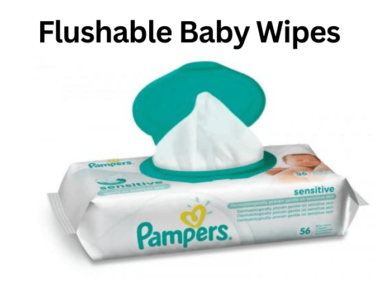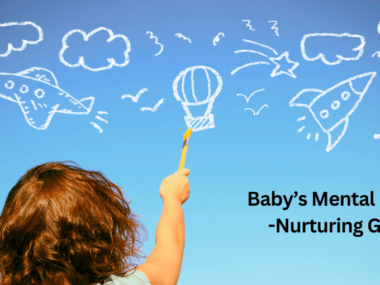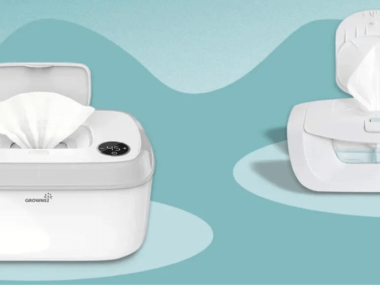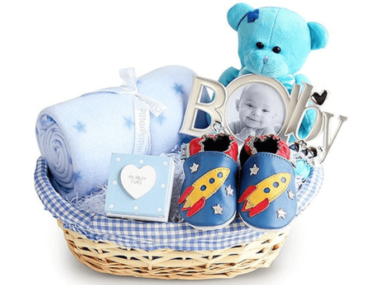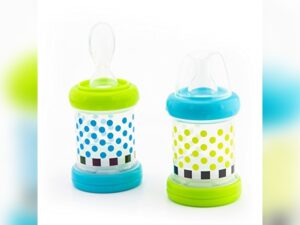Table of Contents Show
Taking care of a baby can be an incredibly rewarding but also challenging experience. Babies require constant attention, love, and care to ensure their well-being and healthy development.

Whether you are a new parent, a family member, or a caretaker, understanding the basics of caring for a baby is essential.
This comprehensive guide aims to provide you with practical tips, expert advice, and helpful insights on how to effectively take care of a baby.
From feeding and soothing techniques to establishing routines and promoting growth milestones, this introduction will lay the foundation for a successful and fulfilling journey in caring for a precious little one.
Whether you are a new parent, a caregiver, or a friend lending a helping hand, understanding how to effectively take care of a baby is crucial for their well-being.
So, let us embark together on this wonderful adventure of baby care, armed with knowledge and compassion, as we nurture and support the growth of these beautiful little beings.
Importance of Proper Nutrition
Proper nutrition is crucial when it comes to taking care of a baby. It plays a vital role in their growth, development, and overall health.
Here are some reasons why proper nutrition is important to taking care of a baby:
Growth and development
Babies experience rapid growth and development during their early years. Providing them with a well-balanced diet ensures that they receive the necessary nutrients to support their physical and cognitive development.
Nutrients like proteins, healthy fats, vitamins, and minerals are essential for building strong bones, developing muscles, and supporting brain development.
Strong immune system
A well-nourished baby is more likely to have a robust immune system. Proper nutrition helps in strengthening their immune system, making them more resistant to illnesses and infections.
Nutrients like vitamin C, vitamin D, and zinc are important for immune function and can help keep the baby healthy.
Brain development
Adequate nutrition is crucial for the development of a baby’s brain and nervous system. Nutrients like omega-3 fatty acids, iron, choline, and iodine support brain growth and function.
Providing the right nutrition during this critical period can contribute to healthy cognitive development and enhance learning abilities.
Healthy weight management
Proper nutrition is essential for maintaining a healthy weight in babies. It is important to offer a variety of nutritious foods and portion sizes appropriate for their age.
A balanced diet consisting of fruits, vegetables, whole grains, lean proteins, and healthy fats can help the baby develop healthy eating habits and prevent issues like undernutrition or overweight.
Establishing lifelong healthy habits
The early years are the foundation for a baby’s future eating habits. By introducing a wide range of healthy foods, caregivers can help the baby develop a taste for nutritious options and establish healthy eating patterns.
Growth and development milestones
Growth and development milestones are important markers in a baby’s journey as they learn and progress in various areas of development.
Taking care of a baby involves understanding and tracking these milestones to ensure their healthy growth and overall well-being.
Physically, babies reach significant milestones such as holding their head up, rolling over, sitting up, and eventually crawling and walking.
These milestones show the progression of their developing muscles and coordination.
Taking care of a baby involves providing ample opportunities for exercise and motor skill development, such as tummy time and supervised play sessions to encourage reaching, grasping, and exploring their surroundings.
Cognitive milestones are also crucial as babies learn to think, reason, and understand the world around them.
Playing with age-appropriate toys, reading books, and engaging in interactive activities can help stimulate their cognitive development.
It is essential to Take Care of a Baby by providing a safe and nurturing environment that encourages exploration and learning.
Emotional and social milestones are equally important and involve a baby’s ability to bond, communicate, and interact with others.
Taking care of a baby includes responding promptly to their cues, such as feeding when hungry, comforting when upset, and engaging in playful interactions to foster emotional connection.
As they grow, babies start to develop social skills, including smiling, babbling, and eventually forming attachments with their primary caregivers.
Language milestones are also significant as babies progress from cooing and simple sounds to understanding and producing words.
Engaging in conversations, talking to the baby, and reading aloud can help in their language development.
Taking care of a baby involves providing a language-rich environment, offering simple instructions, and encouraging them to communicate through gestures, sounds, and eventually words
Important Safety Precautions
Ensuring the safety of a baby is an essential aspect of take care of a baby. The following are some very important safety precautions to remember:
- Supervision: Never leave a baby unattended, especially on high surfaces such as changing tables or countertops. Always keep an eye on them to prevent potential accidents or falls.
- Babyproofing: Babyproofing the home is crucial to prevent accidents and injuries. Secure cabinets, install safety gates at staircases, cover electrical outlets, and secure heavy furniture or appliances that could pose a hazard to curious little ones.
- Safe bathing: When bathing the baby, always check the water temperature to ensure it is not too hot or too cold.Never, not even for a second, let the baby bathe alone. Keep one hand on the baby at all times to prevent accidental drowning.
- Safe handling: It is important to handle a baby with care. Support their head and neck when carrying or cradling them. Be gentle and avoid shaking the baby, as it can cause serious brain injuries.
- Safe transportation: When traveling with a baby, use a properly installed rear-facing car seat that meets safety standards. Ensure that the baby is securely strapped in each time you travel by car.
- Poison prevention: Keep all medications, cleaning products, and chemicals out of reach and locked away. Be cautious of plants and other potential hazards that could be poisonous if ingested.
- Sun protection: Protect the baby’s sensitive skin from harmful UV rays by using sunscreen (after 6 months), hats, and lightweight clothing that covers their exposed skin. Avoid direct sunlight during peak hours.
- Safe temperature: Maintain a comfortable and safe temperature in the baby’s environment. Avoid exposing them to extreme temperatures, whether too hot or too cold.
Building a Strong Bond with Your Baby
Building a strong bond with your baby is a vital aspect of taking care of them. A strong and nurturing bond provides a foundation for their emotional well-being and development.
Here are some ways to foster and strengthen that bond:
Skin-to-skin contact
Practice skin-to-skin contact with your baby, especially in the early days after birth. This promotes bonding and helps regulate their temperature, heart rate, and breathing.
Hold them against your bare chest, and enjoy the closeness and connection it provides.
Eye contact and facial expressions
Engage in regular eye contact with your baby. Look into their eyes, smile at them, and respond to their expressions.
This helps them feel seen, understood and loved. Responding to their facial expressions with warmth and positivity builds trust and strengthens the bond.
Gentle touch and cuddling
Physical touch is an essential way to build a strong bond with your baby. Give gentle touches, cuddle them, and hold them close.
These physical displays of affection provide comfort, security, and a sense of connection.
Respond to their cues
Pay attention to your baby’s needs and cues. Respond promptly to their cries, hunger cues, and signals of discomfort.
By meeting their needs consistently, you build trust and create a secure attachment, which is fundamental for a strong bond.
Take care of yourself
Building a strong bond with your baby also involves taking care of your own well-being. When you are emotionally and physically well, you can provide the support and nurturing they need.
Seek support from loved ones, practice self-care, and ensure you have time for rest and rejuvenation.
Ensuring Baby’s Physical Development
Ensuring a baby’s physical development is a crucial aspect of taking care of them. Physical development includes milestones such as motor skills, coordination, and overall fitness. Here are some ways to promote and support their physical development:
- Tummy time: Regular tummy time sessions are essential for developing strength in the baby’s neck, upper body, and core muscles. Place the baby on their tummy for short periods several times a day, gradually increasing the duration as they grow. This helps build the muscles needed for crawling, sitting, and eventually walking.
- Encourage movement: Provide opportunities for the baby to move and explore their surroundings. Allow them to kick, reach, and grasp objects to develop their gross and fine motor skills. As they grow, introduce simple toys that encourage crawling, grasping, and physical interaction.
- Support sitting and standing: As the baby grows, provide support and assistance as they learn to sit and stand. Use pillows or cushions for support when they are sitting, and offer stable furniture or supportive toys for standing. This helps strengthen their muscles and balance.
- Space for exploration: Create a safe and stimulating environment that allows the baby to explore and move freely. Make sure the surroundings are clear of hazards, and provide enough space for them to crawl, roll, and practice their motor skills.
- Engage in physical activities: Engage in activities that promote physical development, such as gentle exercise, baby yoga, or infant massage. These activities help strengthen muscles, improve flexibility, and enhance overall physical well-being.
- Outdoor playtime: Whenever possible, take the baby outdoors to experience fresh air and different sensory stimuli. Outdoor playtime provides opportunities for gross motor development, coordination, and exposure to nature.
Nurturing a Baby’s Emotional Health
Nurturing a baby’s emotional health is essential for their overall well-being and development. Here are some tips on how to promote emotional health in babies:
Establish a secure and loving bond
Babies thrive in an environment where they feel loved and cared for. Respond promptly to their needs for comfort, nourishment, and affection.
Provide a soothing environment
Create a calm and peaceful atmosphere at home. Reduce noise levels, avoid excessive stimulation, and maintain a predictable routine to help babies feel safe and secure.
Engage in positive interactions
Regularly engage in activities that promote positive interactions with your baby, such as talking, singing, and playing. These interactions develop their social and emotional skills while deepening the bond between you and your baby.
Practice responsive parenting
Pay attention to your baby’s cues and signals, and respond to them sensitively. Recognize and meet their needs promptly, as this helps them develop trust and a sense of security.
Encourage healthy attachments
Allow your baby to form secure attachments with various caregivers, such as parents, grandparents, or other trusted individuals. These attachments help them develop emotional resilience and a sense of belonging.
Show empathy and understanding
Babies have emotions, and they need to learn how to manage them. Show empathy and understanding when your baby is upset, comforting them and helping them learn to regulate their emotions.
Conclusion
Take care of a baby involves various aspects, including growth and development milestones, proper nutrition, safety precautions, and building a strong bond.
By understanding and tracking growth and development milestones, caregivers can ensure that the baby is progressing healthily.
Providing proper nutrition is essential for their growth, development, and overall health, while implementing safety precautions helps create a secure and protected environment.
Building a strong bond with the baby through nurturing actions like skin-to-skin contact, eye contact, gentle touch, and attentive engagement fosters emotional well-being and connection.
Together, these elements contribute to a holistic approach in taking care of a baby, ensuring their well-being and laying the foundation for a healthy and fulfilling life.
Cathy Ryan
The creative force behind Baby Nurturers - is a passionate advocate for all things baby. With years of experience in the parenting industry, Cathy is dedicated to providing valuable insights, tips, and resources to support parents in nurturing and caring for their little ones.

